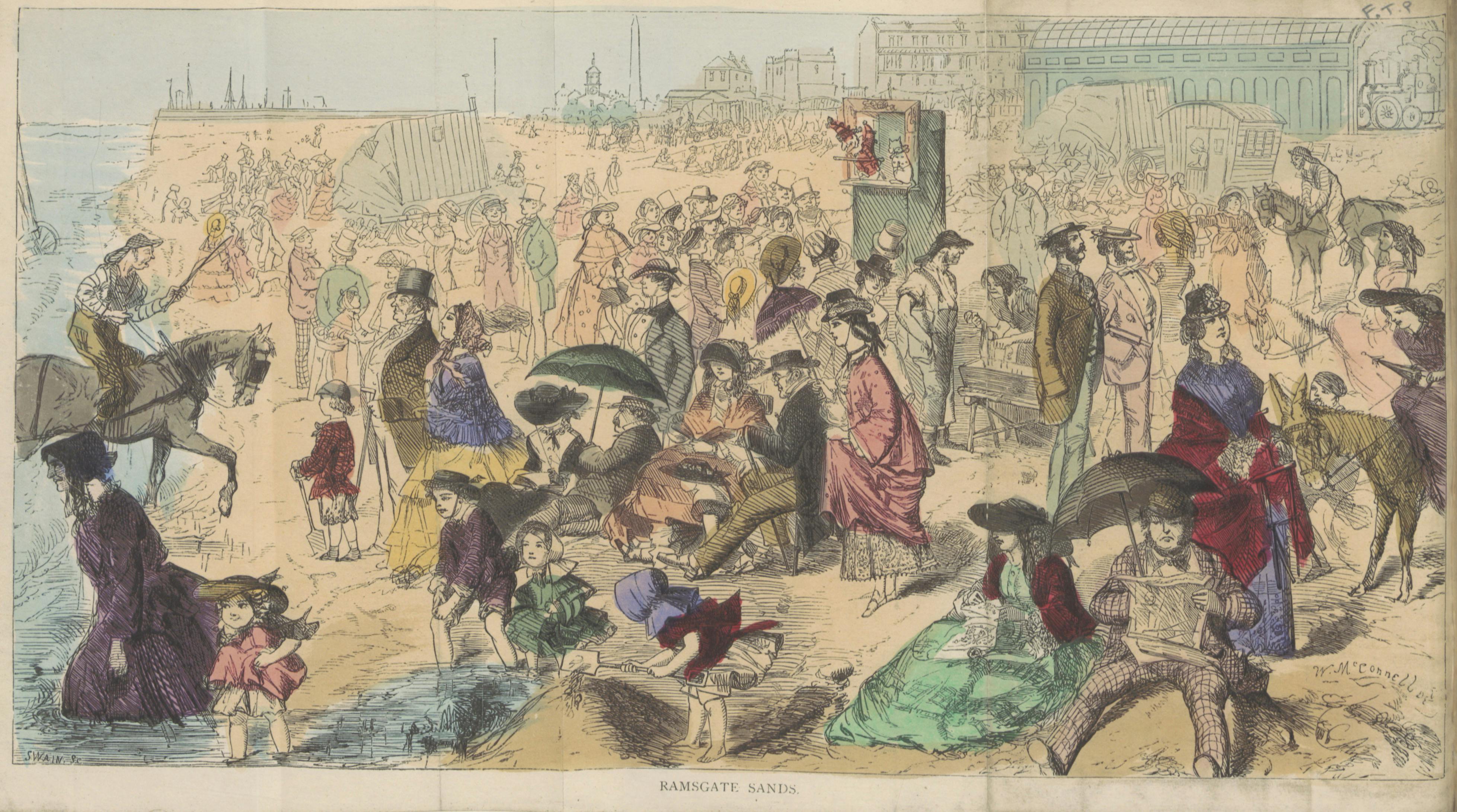How to Plan for a Career Break
- Financial PlanningThe pandemic seems to have prompted a lot of people to re-think their career and what they want from their working life. During that time, many were affected by job loss, The Great Resignation, or just burnout.

More broadly, all manner of Retire Early and Financial Independence movements have been around for years now, questioning our unspoken assumptions of what work looks like. As a result, career breaks are becoming more common.
Sometimes career breaks are planned and sometimes they’re not, but they’re nothing new. Women (mostly) have been taking breaks to care for children or ill/elderly family members since they entered the workplace. In addition, an unexpected disability can force an unplanned break on the heartiest of workers. Today we’re going to examine planned career breaks, but it’s well worth reading through what I have to say here, since you never know when you may be stuck with an unplanned one. Why not prepare a bit now?
Career breaks can be a great way to reset and come back to work energized. The key, though, is to plan for it. If you’re going to stop working for a significant amount of time, you’ll want to be sure the rest of your financial life is humming along. So let’s get started with some planning considerations when it comes to career breaks:
1. Set a purpose for your break. Your purpose doesn’t have to be anything earth-shattering; it could just be to relax and observe what happens. It’s important to get clear on what you want out of your break, though. Do you want to work on your health? Spend time with family or care for a family member? Work on a passion project or volunteer? Travel and have adventures? Learn something? Grow as a person? Maybe you will have some specific goals you’d like to achieve during your break, but you don’t HAVE to. Your break can happen outside the pressure of our achievement culture, too. It's your break.
However, it’s important to name your purpose so you can set boundaries around it. When people find out you’re on a break, there might be just the teensiest temptation to assume you have time to run their errands or take care of little Xena every week (whether that’s a dog, cat, or kid). Maybe you’ll need to set boundaries for yourself, like making sure you get out each day or take the three long trips you were planning instead of staying home to binge-watch The Fast Show.
It's also important to name your purpose so you can do an effective retrospective after you get back (see #11).
2. Decide when you want to take your break and how long it will be. If you set a target date for your break, you’ll know how long you have to save and plan for it. Setting a length of time for your break may also seem obvious, but if you don’t do this you might be tempted to extend the break again and again to the point that you harm your financial future.
3. Know how much you spend/create a spending plan. Hopefully you’ve already created a spending plan as part of your financial life planning. How will that change while you’re on your break? Where will you spend less and where will you spend more? You’ll want a new spending plan for your break, including both needs and wants.
4. Try decreasing your expenses in preparation for your break. This is a good practice at any time, but living beneath your means is especially important during your break. After all, the less you spend during your break, the less income and savings you’ll need to fund it. You might find a few monthly subscriptions you can eliminate, look for deals on things you need to buy or services you use, cut down on your discretionary spending, and so forth. I list several ways to save money here, in a past post about working from home.
5. Identify and optimize your sources of income for the break, and have a Plan B. I list a few ideas for generating income below, but you might also want to line up some of these options as a Plan B in case you run low on cash during your break.
a. Rent out your home (or part of it) for the duration of your break, or for shorter periods when you’re away.
b. Set up and maximize passive income sources (rental properties, interest, dividend-paying stock, your 1M-subscriber YouTube channel, an eBook, etc.).
c. Plan for side gigs or periods of work during your break.
d. Check into paid leave. If you’re taking a break to care for family, there may be paid leave options available to you. Some employers may offer sabbaticals or other paid breaks, so it’s worth checking.
e. Resist the temptation to borrow or withdraw funds from retirement accounts. I don’t recommend taking on debt to fund a break unless it’s the last resort, meaning you have an unplanned, emergency break. You probably won’t be earning as much money while you’re on your break and taking on debt just puts you further in the hole.
Taking ongoing withdrawals from retirement accounts under IRS Rule 72(t) could work if you have enough retirement savings, but make sure to run the numbers with your financial life planner to make sure you’re not harming your long-term retirement picture. Rule 72(t) allows you to take substantial and equal payments from your retirement accounts without penalty, even if you’re not 59½ yet, so it can be a source of cash for those who have already funded their retirement or are pretty close.
6. Save for the rest of your expenses during the break AND the period it will take you to re-enter the workplace. If your sources of income won’t cover the cost of your break, you’ll need to save money to fund the remainder. Also think about whether you will be able to step right back into work as soon as your break is over. If not, save enough to cover your expenses while you’re looking for work (in the U.S., it takes an average of 23 weeks to find a new job). You might also consider contracting or temporary roles while you look for something more permanent.
7. Make sure your emergency reserve is topped up before you take your break. Emergency reserves are just that: savings to help you cover emergencies, like the fridge going out or an unexpected medical bill. Keep these funds liquid, meaning that cash is easily accessible if you need it. You don’t want to have to sell stocks at a loss to cover an emergency, for example.
8. Remember you might not be contributing toward your retirement accounts while you’re on your break. If you plan on making earned income during the break, you can still keep contributing to your retirement plans up to IRS limits. Be sure to factor in the savings you WON’T be putting into retirement accounts during that time when you’re updating your financial life plan. Make sure you won’t be harming your retirement picture to take your break.
9. Keep up your insurance coverage. You’ll want to maintain your insurance policies during your break, especially your healthcare coverage. You might be able to maintain healthcare coverage via the COBRA program, or you can check with a broker and buy an individual plan.
You will also want to maintain any life and long-term disability insurance you have outside your employer unless your circumstances have changed. If someone is still counting on you for your income, you’ll need this coverage. If leaving your employer means you don’t have coverage at all, check with a broker for solutions to protect you during your break.
10. Have a re-entry plan. You may be one of the fortunate people who has access to family leave or a sabbatical, or your employer may be happy to have you back as soon as you’re done with your break. If not, you’ll need to plan for getting back into the workplace. Be sure to stay connected with the people who can help you return to work, and make sure you have a good explanation for potential employers about why you took the break and what you learned along the way. As I said in #6, make sure you save enough to cover your expenses while you look for work, and consider consulting or gig work to fill in the gaps.
11. Do a retrospective. On my coach’s advice, I’ve been doing a lot more retrospectives lately, for everything from meetings to holidays to get-togethers with friends. It’s fabulous! A retrospective for your break could involve reflecting about your time off, thinking about what you learned and experienced, why that matters to you, and what you will do based on that information. You might also think about what went well and didn’t go well or consider how well your break delivered on your purpose from #1. I think it’s also a great idea to celebrate your experience as part of a retrospective.
I find that when I do a retrospective, I’m more likely to appreciate every experience as a learning opportunity. Whether I had a wonderful experience or it was an unmitigated disaster, there is always something to be learned. It seems to me that a career break is a great chance to learn more about ourselves, and we can experience some personal growth as a result.
Friends, I wish you all the best as you plan for your career break. I hope it’s everything you had hoped for and you learn a bucketload during your time away from your regular work. Let me know how it goes!

